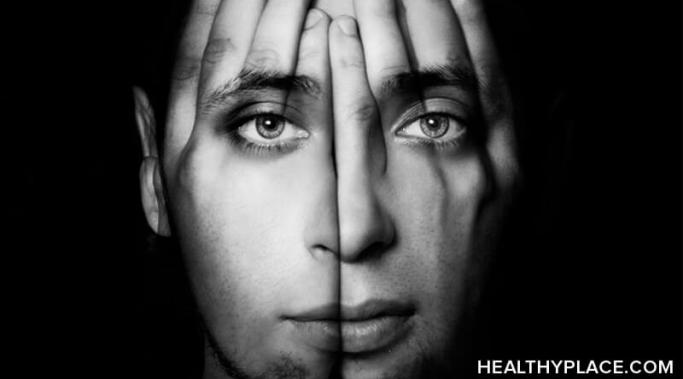When I was a young woman, before my first psychotic episode, I was incredibly independent. I frequently traveled internationally to Egypt and Brazil to visit my parents, who worked overseas. I also took road trips from Seattle to as far as San Diego by myself. Those days of independence are long gone. As someone with a severe mental illness, I need to connect and rely on people more than I ever imagined, but though I have schizophrenia, I am not a burden.
Creative Schizophrenia
One of my favorite memes on social media says something like, “It’s almost time for me to put away my normal anxiety and put on my fancy Christmas anxiety.” Christmas is a very anxious--even manic--time of year for many people. But I have a special reason why my anxiety skyrockets around the holidays.
When some people read about those of us dealing with the effects of schizophrenia, they feel the same way I do about some other chronic illnesses. How can we find joy when we can't trust our minds? How do we function when we have to go through psychosis or stay at a psychiatric hospital or treatment facility? How do we go on when we hear voices or have paranoia or delusions of one form or another? How do we form relationships, go to school, or, if we are fortunate, go to work?
This story is a bit embarrassing to share. But people really feel the stories are helpful, so here you go. I want to admit that I can’t shower without my husband, Tom, in the bathroom with me.
Internalized stigma caused me to keep my schizophrenia diagnosis a secret for almost 20 years after my first psychotic episode. I didn't tell friends or share the information with my in-laws when I married. Looking back on that time, it was as if I never let anyone besides my husband get close to me. I didn't realize that I created a bubble of authenticity that only my husband and I inhabited. I put on a face and front for everyone else. Sometimes I wanted to tell people and was close to opening up but remained closed-lipped.
A few days ago, my schizoaffective anxiety almost convinced me that I was dying--again. Here’s what happened.
When talking about paranoid schizophrenia, we must remember that everyone has a different experience with the illness. Some people live with few or no symptoms of paranoid schizophrenia, while others live with significant symptoms. I had one period in my life where I lived symptom-free for almost a decade. During that time, I held a full-time job, completed training programs, was involved in hobbies, and was more independent than at any other period in my life. But I haven't had a day entirely symptom-free in the past 10 years.
“You are not alone” is a common phrase within the mental health community. I suspect it means a lot of different things to a lot of different people, but here’s what it means to me and my schizoaffective disorder.
My name is Rebecca Chamaa, and I am excited to start writing for the blog "Creative Schizophrenia." I hope to share parts of my life and illness with you to understand better what living with schizophrenia can look like for someone who has dealt with mental illness for almost 30 years.
I haven’t heard schizoaffective voices in over a year. I am so elated about this, especially since I’ve struggled with auditory hallucinations since my first and only psychotic episode in 1998 when I was 19. Being free of the voices is absolutely liberating.









